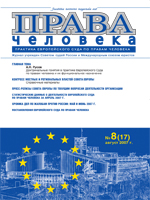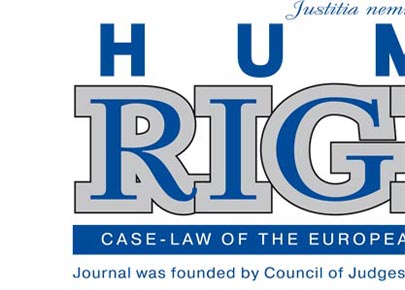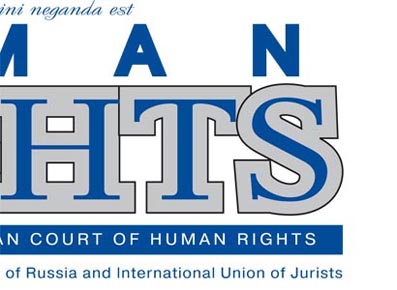
№ 8 (17)
We continue publishing materials related to Sisojeva and others v. Latvia, including
the judgment of the Grand Chamber in the case, which overruled the earlier judgment
of the Chamber and the case-law of the European Court of Human Rights. It seems
that the judgment may predetermine the fate of Ilaşcu and others against Moldova and
Russia as regards the execution of the judgment in the latter case and new potential
claims by the applicants considering that all applicants had been released from prison.
Following the logic of the Grand Chamber in Sisojeva and others v. Latvia, if «the
matter giving rise to the applicants’ complaint under <…> the Convention has been
resolved», it is possible to strike the application out of the European Court’s list of
cases.
The journal will be publishing most interesting judgments of the European Court
with our commentaries, especially in those cases where the Grand Chamber of the
European Court overrules judgments of a Chamber of the Court and changes its own
case-law.
It would be interesting to see how the Grand Chamber of the European Court
overrules judgments adopted by a Chamber of the Court; with that in view, we shall
publish not only the judgments of the Grand Chamber with our commentaries, but the
judgments by a Chamber of the Court overruled by the high instance of the European
Court.
In his article «Conceptual Framework of the Jurisprudence of the European Court of
Human Rights and Its Functional Purpose», Mr Alexey N. Rusov provides an analysis
of certain doctrinal notions and terms used by the European Court in its jurisprudence
and the author also examines factors affecting the use by the European Court of such
notions and terms.
As usual, in this issue, we publish a brief monthly review of judgments and decisions
delivered by the European Court of Human Rights in cases in applications against
Russia.
One of the judgments of the European Court summarised in the June 2007 review is
the judgment in the case of Garabayev v. Russia. Currently, there is much debate on
the matter, whether the Russian Federation may extradite its national to another State.
Under the Constitution of Russia such an extradition is unconditionally impossible,
and another member State of the Council of Europe, the United Kingdom, having
established democratic traditions and being since ancient times alma mater of common
law, i.e. case-law, which demands extradition, should inter alia recall the European
Convention for the Protection of Human Rights and Fundamental Freedoms and the
jurisprudence of the European Court.
In the published translation of the European Court’s judgment in the case of Fadin
v. Russia we again address the issue of the judicial supervisory review procedure in
the legal system of Russia. The European Court entirely dismissed the arguments
by the applicant, who was alleging that the criminal proceedings against him had
been unreasonably long and that the supervisory review as conducted in the case had
violated his rights guaranteed by the Convention. Having dismissed the arguments by
the applicant the Court rightfully indicated that the supervisory review procedure had
been initiated by the applicant himself.
This issue contains the translation of the judgment of the European Court in the case
of Van Houten v. the Netherlands. The Court accepted the respondent State’s proposal
as regarded the payment of a compensation, which the respondent State considered
to be reasonable in the light of the Court’s case-law, and dismissed claims of the
applicant as regarded the amount of the compensation, having decided to strike the
application out of its list of cases, since the applicant refused to secure a friendly
settlement of the matter under the terms of the respondent State. This precedent is
interesting because it allows, in the future, a respondent State «to save its face» in
situations when an applicant persists and does not want to secure a friendly settlement
claiming payment of a disproportionate compensation (many applicants all too often
try to enrich themselves with the help of the Court). A State – by way of unilateral
declaration – consents to pay compensation in a reasonable (as it considers it) amount
and requests the Court to strike the application out of its list of cases. While not finding
in such a unilateral declaration any disrespect for human rights as defined in the
Convention and the Protocols thereto and taking into consideration the undertaking
by the respondent State, the Court agrees with it and strikes the application out of its
list of cases.
We would like to hope that the practice of securing friendly settlements will be more
actively used by the European Court while examining cases.
Vitaly Portnov
 Back
Back
Content 



